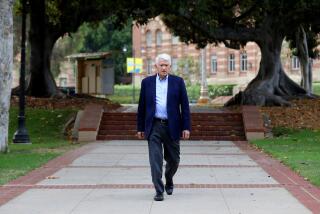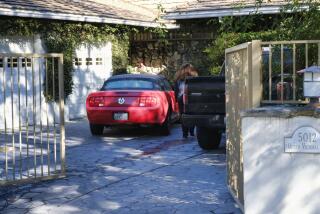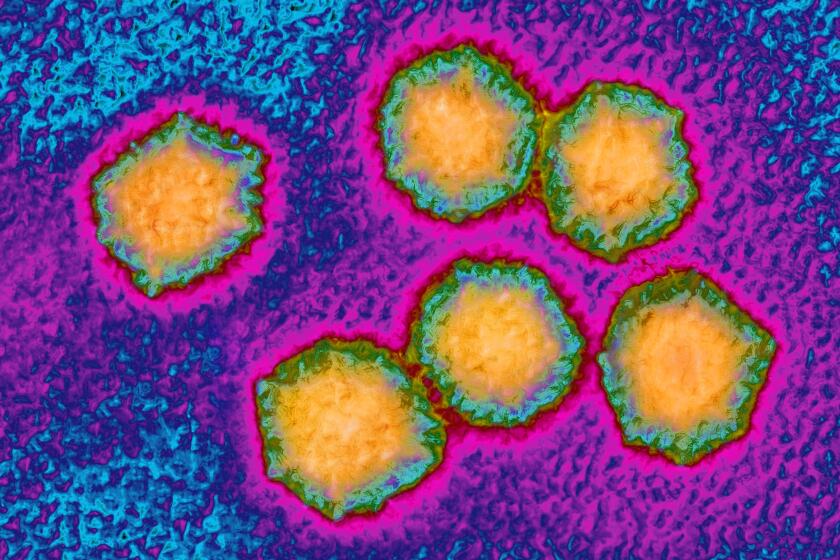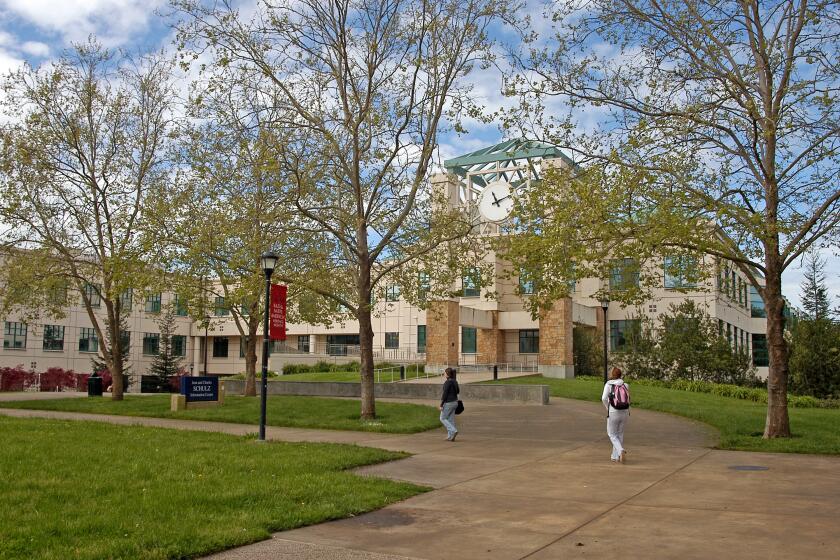Program Teaches Parenting Skills to Young Offenders With Kids
Becoming a parent complicates the lives of teenagers in trouble. But psychotherapist Ellen Faulk believes that with professional help the experience can transform the lives of young criminals, who also happen to be fathers.
As a vice president at the Phillips Graduate Institute and California Family Counseling Center, a training and counseling facility in Encino, Faulk helps administer a program that teaches parenting skills to young men who have run afoul of the law.
Since 1999, the institute, in collaboration with the Los Angeles County Probation Department, has been working with teenage offenders from Camp David Gonzales in Malibu.
The institute developed an innovative, family-based program of counseling and support for the teenagers, many of them gang members guilty of robbery and other serious crimes.
Faulk and her colleagues counsel and train about 50 teenagers at a time -- most between the ages of 14 and 17.
The Holiday Fund gave $15,000 to the institute for its counseling program, which, since 2002, has offered parenting education to the boys at the camp who are fathers.
The institute staff realized that the only way to break the cycle of criminal behavior was to include the youngest family members -- the teen’s own children, Faulk said.
“We saw that many of these offenders were parents of children 0 to 5 years old,” she said.
The staff asked: What kind of parents are the offenders going to be? The best way to make sure the answer was “good parents,” the staff decided, was to include the mother and the teenager’s children in the process.
Counseling topics include pregnancy prevention, prenatal care and the responsibilities of fatherhood.
The young man and the mother of his children learn everything from how to hold a baby to the importance of reading to preschoolers.
The teens also are taught techniques for preventing violence and resolving conflict.
“This is geared for the fathers who are having trouble managing their anger and their impulse control, so we can break that multigenerational process of violence,” Faulk said.
One of the great satisfactions for the staff is “watching these big, macho gangbanger youth offenders change,” Faulk said.
Asked what he had learned, one offender wrote:
“I know now that it’s OK to be a guy who can show love and affection to my child. It’s not about being macho. It’s about showing that emotions are OK.”
*
HOW TO GIVE
The annual Holiday Campaign is part of the Los Angeles Times Family Fund, a fund of the McCormick Tribune Foundation, which this year will match the first $800,000 raised at 50 cents on the dollar.
Donations (checks or money orders) supporting the Holiday Campaign should be sent to: L.A. Times Holiday Campaign, File 56986, Los Angeles, CA 90074-6986.
Do not send cash. Credit card donations can be made on the Web site: www.latimes.com/holidaycampaign.
All donations are tax-deductible. Contributions of $50 or more may be published in The Times unless a donor requests otherwise; acknowledgment cannot be guaranteed. For more information, call (800) LATIMES, Ext. 75771.
More to Read
Start your day right
Sign up for Essential California for news, features and recommendations from the L.A. Times and beyond in your inbox six days a week.
You may occasionally receive promotional content from the Los Angeles Times.






